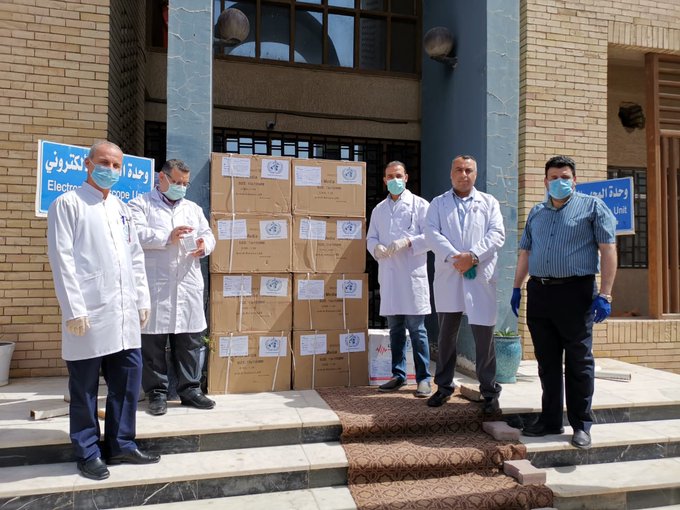Mideast at ‘critical threshold’ in virus numbers: WHO
Over 80 percent of all deaths in the region were reported in five countries — Egypt, Iran, Iraq, Pakistan and Saudi Arabia — according to WHO

By Brinkwire
The World Health Organization warned Wednesday the Middle East was at a decisive moment in the fight against the novel coronavirus, with cases surging as countries ease lockdown measures.
“We are at a critical threshold in our region,” the WHO’s Middle East head, Ahmed al-Mandhari, said in an online press conference.
According to figures published by the global health body on Wednesday, the 22 countries from Morocco to Pakistan had recorded 1,077,706 novel coronavirus cases and 24,973 deaths.
Mandhari said passing a million infections marked a “concerning milestone” and urged countries to strengthen their healthcare systems.
“The number of cases reported in June alone is higher than the total number of cases reported during the four months following the first reported case in the region on 29 January,” he said.
He attributed the rise in confirmed cases to increased testing, the easing in recent weeks of lockdown measures and weakened health infrastructure in conflict-hit countries.
Over 80 percent of all deaths in the region were reported in five countries — Egypt, Iran, Iraq, Pakistan and Saudi Arabia — according to the WHO.
Iran, which has been struggling to contain the Middle East’s deadliest outbreak, on Monday recorded its highest single-day COVID death toll of 162.
It now has a recorded a total of 230,211 infections and 10,958 deaths.
Official figures have shown a rising trajectory in new confirmed cases since early May, when Iran hit a near two-month low in daily recorded infections.
The Islamic republic gradually lifted restrictions from April to try to reopen its sanctions-hit economy.
In neighbouring Iraq, authorities have refused to reimpose strict lockdown measures, even as hospitals across the country, battered by years of war, have been swamped in recent weeks.
While the virus had spread relatively slowly for months, on Wednesday the number of recorded cases surpassed 51,000 including more than 2,000 deaths.
Egypt, the Arab world’s most populous country with 100 million inhabitants, has officially reported 68,000 cases and around 3,000 deaths from the COVID-19 disease.
On Wednesday, authorities reopened the famed Giza pyramids after a three-month closure, a day after resuming international flights as part of efforts to restart the vital tourism industry.
Lebanon, battling an economic crisis and public unrest alongside the novel coronavirus, reopened the Beirut airport after months of closure.
The small eastern Mediterranean state has recorded some of the lowest infection and mortality rates in the Middle East: 1,800 cases and just 34 deaths.
In contrast, neighbouring Israel saw a jump of about 15 percent in case numbers in the last week to over 25,500 on Wednesday, according to government figures.
– West Bank lockdown –
The West Bank too was hit by a sharp spike in infections, with the Palestinian Authority on Wednesday announcing a five-day lockdown across the territory.
Total confirmed coronavirus infections in the territory more than doubled within a week to 2,636 following the easing of previous restrictions.
In Qatar, residents cautiously returned to beaches on Wednesday as the Gulf nation, with one of the world’s highest per-capita infection rates and tough penalties for failing to wear masks in public, continued to reopen.
Its neighbour Saudi Arabia has been the hardest-hit Gulf state, recording more than 194,225 infections and 1,700 deaths.
WHO officials at the virtual meeting urged governments to prepare more intensive care beds and emergency wards.
Mandhari urged individuals to be “cautious and vigilant” as lockdowns and curfews were eased, and to follow protocols recommended by health authorities.
“Easing of lockdowns does not mean easing of the response or easing of social responsibilities,” he said, warning cases could rise as public spaces reopen “even in countries where the situation now seems to be stabilising”.
He also called for global solidarity.
“We have to face this pandemic as one government and one community,” he said.